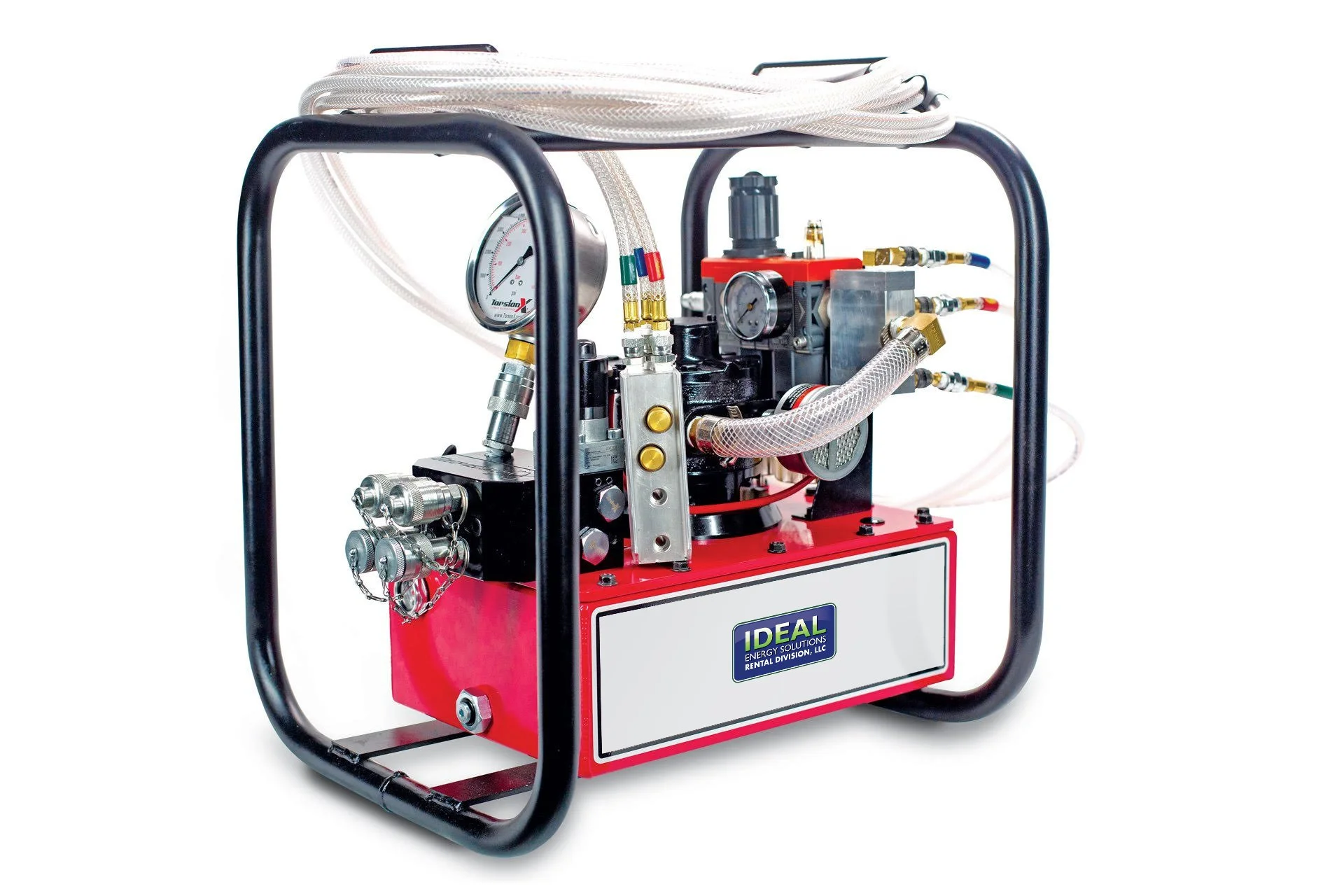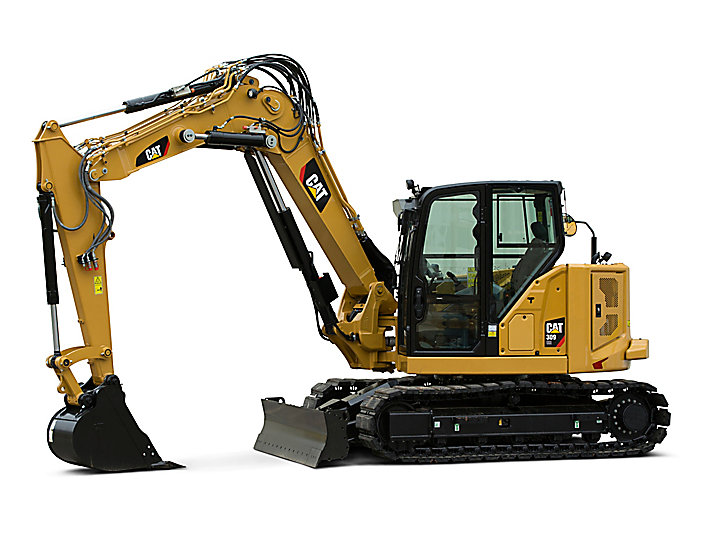Superior Oilfield Rentals oilfield: latest updates shaping production work
A Comprehensive Guide to the Different Sorts Of Oil Field Equipment and Pipeline Equipment Available
The oil and gas market depends heavily on specific devices for effective extraction and transportation. Various types of machinery, from drilling rigs to tank, play vital roles in this complex process. Each tool offers distinct functions that add to overall operational success. Understanding these elements is important for anybody associated with the field. As the sector advances, so also do the innovations that support it. What developments are on the horizon?

Drilling Rigs: The Foundation of Oil Exploration
Drilling rigs offer as the important equipment in the domain name of oil expedition, allowing firms to gain access to hydrocarbon gets buried deep under the Earth's surface. These rigs can be found in different kinds, including land rigs, offshore rigs, and mobile devices, each designed to run in specific atmospheres. Outfitted with sophisticated modern technology, drilling rigs can pass through geological formations with precision, making certain efficient resource extraction. The architectural honesty and operational abilities of these rigs are essential, as they should withstand severe problems and considerable pressures. The selection of an exploration gear affects the general job expense and timeline, making it an essential consideration for oil business seeking to optimize their exploration initiatives and maximize performance in their procedures.
Pumps: Crucial for Liquid Motion
In the oil extraction process, the role of pumps is significant, facilitating the activity of liquids throughout different stages of production. Pumps are important for transferring petroleum, water, and various other fluids from below ground tanks to the surface and after that via pipes to refineries. They are available in different types, consisting of centrifugal, favorable displacement, and submersible pumps, each offering certain purposes based upon the liquid attributes and operational requirements. Centrifugal pumps are generally made use of for their performance in high-flow applications, while positive variation pumps succeed in taking care of thick liquids. The selection of pump impacts total efficiency, operational safety, and maintenance expenses. Proper choice and upkeep of pumps are vital for enhancing manufacturing and lessening downtime in oil field procedures.
Valves: Controlling Circulation and Pressure

Valves play an essential duty in taking care of the flow and pressure of fluids within oil fields and pipelines. Different kinds of shutoffs offer distinct applications, each developed to meet details features basic for efficient operation - Superior Oilfield Rentals. Understanding the qualities and uses these valves is important for enhancing system performance and safety
Sorts of Valves
Important components in oil field procedures, shutoffs play a crucial duty in regulating the circulation and stress of liquids within pipelines and equipment. Various kinds of shutoffs are made use of to fulfill the varied needs of oil and gas production. Common kinds consist of entrance valves, which provide a straight-line circulation and marginal pressure drop; world shutoffs, understood for their throttling capabilities; and ball shutoffs, identified for their quick on/off control. Additionally, check shutoffs stop backflow, while butterfly valves supply a light-weight service for regulating circulation. Each valve type is made with details materials and configurations to hold up against the extreme conditions typically found in oil areas, making sure reliability and performance in operations. Understanding these kinds is vital for effective system monitoring.
Valve Applications and Functions
While numerous kinds of valves serve unique purposes, their key applications focus on regulating flow and stress within oil and gas systems. Valves such as gateway, globe, and sphere valves control fluid motion, ensuring peak efficiency and safety. Gateway valves are frequently utilized for on/off control, providing very little circulation resistance. Globe shutoffs, on the various other hand, deal precise circulation policy, making them suitable for throttling applications. Round shutoffs are preferred for their quick procedure and tight securing abilities. Additionally, pressure safety valve are crucial for preventing system overpressure, securing tools stability. On the whole, the proper selection and application of shutoffs enhance functional efficiency, making certain the reputable transportation of oil and gas with pipelines and processing facilities.
Compressors: Enhancing Gas Transport
Compressors play a crucial function in the effective transportation of gas, guaranteeing that it moves efficiently with pipes over lengthy ranges. These devices increase the pressure of gas, enabling it to get over friction and elevation changes within the pipeline system. Additionally, compressors help with the balancing of supply and demand, fitting changes in usage and manufacturing rates. Different kinds of compressors are utilized in the market, including centrifugal, reciprocating, and rotary screw compressors, each offering distinct advantages based on the functional needs. Normal upkeep of these compressors is crucial to take full advantage of effectiveness and lessen downtime, eventually adding to a trustworthy gas transport network. Their important function highlights the significance of compressors in the overall oil and gas framework.
Storage Tanks: Safe and Reliable Liquid Management
Effective transportation of all-natural gas relies upon different support group, one of which is the appropriate management of storage space containers. These storage tanks play water main repair an important role in securely consisting this post of fluids, ensuring that functional effectiveness is maintained while decreasing environmental risks. Built from resilient products, they are created to withstand high stress and destructive elements. Appropriately sized and tactically situated, tank assist in the smooth flow of gas and other liquids, avoiding traffic jams in supply chains. Regular upkeep and monitoring are important to detect leakages or structural issues, promoting security and compliance with regulative criteria. Ultimately, the reliable management of storage space containers is important for the overall stability and integrity of the oil and gas industry's fluid handling systems.
Pipeline Equipments: Infrastructure for Transport
Pipeline systems function as the backbone of the oil and gas market, facilitating the effective transport of hydrocarbons over vast distances. These systems contain various elements, consisting of pipes, valves, pumps, and compressors, all diligently developed to ensure smooth flow. The materials made use of in pipeline construction, commonly steel or high-density polyethylene, are picked for sturdiness and resistance to deterioration. Pipeline networks can span throughout land and water, attaching production sites to refineries and circulation facilities. In addition, progressed technology allows real-time monitoring of flow rates and pressure levels, enhancing operational efficiency. The tactical placement of these pipelines reduces ecological influence while making the most of source ease of access, thus playing a crucial duty in conference power needs worldwide.
Security Equipment: Making Certain Employee and Environmental Management
The operation of pipeline systems, while necessary for power transportation, likewise provides substantial safety obstacles for workers and the setting. Safety and security tools plays a substantial function in he said mitigating these threats. Individual protective devices (PPE) such as helmets, handwear covers, and non-slip shoes safeguards workers from physical threats. Furthermore, gas detection systems monitor for leaks, making certain that hazardous substances do not posture a danger to personnel or the surrounding community. Emergency situation shutdown systems are necessary for promptly halting procedures during a crisis, stopping prospective catastrophes. Spill control materials, including absorbents and obstacles, are essential for decreasing environmental influence. In general, buying comprehensive safety and security equipment is critical for maintaining operational honesty and shielding both workers and the environment in the oil and gas sector.

Frequently Asked Inquiries
Just how Do I Choose the Right Oil Field Equipment for My Project?
Selecting the appropriate oil field equipment involves assessing job specs, budget plan restrictions, and operational requirements. Think about elements such as equipment reliability, compatibility with existing systems, and the supplier's credibility to guarantee peak efficiency and safety and security.
What Are the Upkeep Demands for Oil Field Equipment?
Maintenance requirements for oil field tools consist of routine evaluations, lubrication, and timely repairs. Operators should additionally stick to maker guidelines, monitor efficiency metrics, and assurance compliance with safety regulations to boost durability and efficiency.

Exactly How Can I Make Certain Compliance With Environmental Laws?
To assure compliance with environmental laws, companies need to perform regular audits, carry out ideal practices, buy training, keep correct documentation, and remain upgraded on legislation (Superior Oilfield Rentals oilfield). Cooperation with environmental companies can additionally enhance adherence to policies
What Is the Ordinary Lifespan of Pipeline Equipment?
The average life expectancy of pipeline tools usually varies from 20 to half a century, depending upon aspects such as worldly top quality, environmental conditions, and upkeep techniques. Regular examinations can significantly affect longevity and operational efficiency.
Just how Do I Securely Deliver Oil Field Equipment to Remote Locations?
Transporting oil field devices to remote places needs cautious planning, consisting of route evaluation, securing permits, making use of ideal lorries, and ensuring safety and security methods are followed. Appropriate training and communication among crews are necessary for successful transportation.